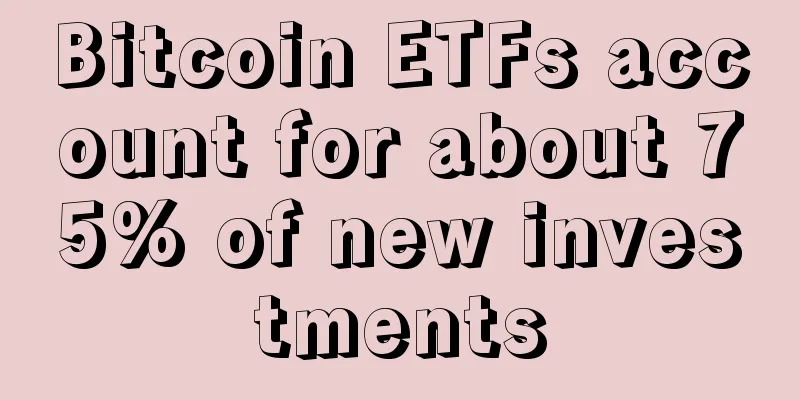The mystery of Bitcoin’s identity: currency? asset? or commodity?

|
Author: GTon Image source: Dazhi The U.S. Commodity Futures Trading Commission (CFTC) announced on Thursday that bitcoin and other virtual currencies are "properly defined as commodities," a definition that still needs to be verified by bitcoin service providers. “In its first standoff against an unregistered bitcoin options trading platform, the CFTC asserts that bitcoin and other major currencies are commodities covered by the Commodity Exchange Act.” — CFTC In clarifying its position, the CFTC ordered a bitcoin options trading platform operator and its CEO to “cease and desist from unlawfully offering bitcoin options services and from trading or processing swaps without registration.” The regulator filed a lawsuit against Coinflip, Inc. and the company’s CEO Francisco Riordan for “conducting commodity options-related work without complying with the Commodity Exchange Act (CEA) and CFTC regulations.” “The definition of ‘commodity’ is very broad and includes Bitcoin and other major currencies within this definition and therefore can be fully defined as commodities.” In December 2014, CFTC Chairman Timothy Massad testified before a U.S. Senate Committee on Agriculture, Nutrition and Forestry in Washington, D.C. “While the CFTC does not have policies and specific procedures for important currencies such as Bitcoin, the agency’s authority extends to all futures and swaps commodity contracts.” Massad’s testimony appears to reflect a more streamlined regulatory approach. In the United States, regulators have been issuing definitions and interpretations of bitcoin cases in various jurisdictions. The first government agency to come forward and explain its position was the U.S. Securities and Exchange Commission (SEC), which in 2013 sued the “Bitcoin-denominated Ponzi scheme” Bitcoin Savings Trust (BTCST) and its founder Trendon Shavers. The complaint alleges a “false offer and sale of securities.” Shavers is accused of falsely promising investors weekly interest rates of up to 7% based on BTCST’s market arbitrage activity, as well as selling bitcoin to individuals who wanted to buy bitcoin “secretly,” quickly, or in large quantities. Shavers’ main argument was that his company’s investments were “not securities” because “Bitcoin is not money and cannot be regulated by the U.S. government.” The SEC argued that BTCST’s Bitcoin investments fall under the definition of securities because they are both investment contracts and notes. The U.S. District Court supported the SEC’s view and held that “there is no reason to conclude that Bitcoin is not money.” Financial Crimes Enforcement Network (FinCEN) also defines electronic money as “a medium of exchange that operates like money in certain environments.” FinCEN monitors money service businesses, which need to obtain a money transmitter license, a very expensive process that few startups can afford and few Bitcoin service providers can obtain. The SEC and the Enforcement Network have joined the courts, and the Internal Revenue Service (IRS) also joined last year, and officially announced that Bitcoin and other major currencies will be treated as property for federal tax purposes. "In some circumstances, virtual currencies may operate like 'real' currency — that is, coins and banknotes used in the United States or any other country that are designated as legal tender, circulate, and are used and accepted as a medium of exchange in the country of issuance — but virtual currencies do not have the status of legal tender in any jurisdiction." - IRS The tax authority’s statement noted that “the general tax principles applicable to property transactions also apply to virtual currency transactions.” The topic of regulation divides the Bitcoin industry. Although Coinflip CEO Riordan may be mistaken that the government cannot autonomously regulate currency to provide business protection, the SEC still retains their charges. It is clear that government regulators are used to regulate business activities, not currency. LedgerX CEO Paul Chou said, "Federal agencies will implement a regulatory framework to protect financial markets and the participants therein." |
<<: Adverti: The Google AdSense of Bitcoin
>>: Bitcoin regains digital currency status, the world may usher in the era of currency M5
Recommend
How to tell if your shoulders are broad
When you look at a person, you can tell how much ...
Are people with broken palms more emotionally unstable?
A broken palm means there is a line in the middle...
Are women with half eyebrows cruel and emotionally indifferent?
In reality, many times our problems lie in the fa...
Men with crossed eyebrows, is the fate of men with crossed eyebrows good?
Everyone has eyebrows, but the shape of each pers...
Investment bank analyst: Although Bitcoin ETF can bring significant benefits, the probability of approval is no more than 25%
According to investment bank Needham and Co, it i...
What kind of woman should not have a face that brings bad luck to her husband?
What kind of woman is not desirable? According to...
What does a man's double broken palm mean?
Most people have three obvious palm lines, namely...
What kind of career line will make people successful?
In physiognomy, the career line can reveal a pers...
ECB President: Stablecoins need to be regulated
European Central Bank President Christine Lagarde...
How to read the lines on the forehead
In physiognomy, there is a saying that one should...
With the popularity of DeFi, can the Ethereum network bear its weight?
The number of Ethereum network transactions has m...
A narrow life gate means a person has no longevity, and a dark-skinned person with rough skin means he has to travel to a foreign land.
The specific shape of the Mingmen point is actual...
Eyebrow fortune telling: Is it good to have one eyebrow longer than the other?
Eyebrow fortune telling: Is it good to have one e...
What facial features indicate the arrival of marriage?
Everyone hopes that their true love can come soon...
The market continues to fluctuate, hold on to your chips
Author | Hashipi Analysis Team...









